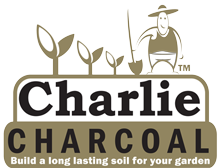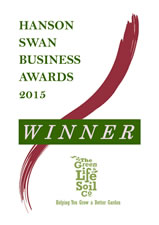| item(s), Total: $0.00 View Cart |
| Shopping cart is empty. |
Spring is our busy time @ GLSC - so if you're coming to visit us, particularly on a Saturday, we appreciate your patience! If you're planning to collect a specialty mix, it would pay to call ahead to make sure we can organise it for you. With the long weekend coming up at the end of the month, we'll be busy - so if you're wanting a delivery to get your garden projects underway, please plan ahead to avoid missing out! We will be open over the long weekend as follows: Saturday 24th September- 8.30am - 4.00pm Spring is the perfect time to get planting. We've got loads of heritage seeds for your summer crops, still some rhubarb & asparagus crowns (be quick!), and there's more seedlings starting to trickle through. They take a while to get going in early spring because the weather (especially nights) are cool - so please be a little patient. None of our vegies are forced on heat beds; so it means they're grown with the seasons and hardened off - which means you're starting with a stronger seedling than those forced and grown in hothouse conditions, which sometimes struggle in the 'real world' of your garden bed. If you're looking for advice on building garden beds or improving what you've got - please come in and see us! Bring in a small soil sample (about half a cup will do) taken from the soil profile of your garden and we can do a pH test and check out the soil texture - useful to work out what soil improvement will help your garden thrive. Check out our articles below on soil building & using mulch - they will be useful for you, too. We hope to see you soon @ The Green Life Soil Co. Until then - happy gardening! In this newsletter:
Jobs to do in the September Garden
WHAT TO PLANT NOW
Each week now we'll have more varieties becoming available in our seedling range - so if you're time poor, this may be the best option for you. Here's some ideas as to what you can plant now (remember to see our FREE downloadable guides on our website - click here!) Asparagus, Artichokes Jerusalem and Globe, Asian greens, Beans, Beetroot, Broccoli*, Capsicum, Chilli, Carrots, Celery, Chives, Corn, Cucumber, Dill, Eggplant, Fennel, Kale*, Lettuce, Onion, Parsnip, Peas, Potato, Pumpkin, Radish, Rhubarb, Rocket, Silverbeet, Snow pea, Spring onion, Strawberries, Sweet corn, Tomato, Turnip, Zucchini. (Check out our extensive info on growing various vegies and herbs in Perth here.) * Brassicas will grow in Perth into Spring/Summer, provided conditions are suitable. Be aware increased pest pressure over the warmer months is likely; are you prepared to net your vegies or deal with cabbage butterflies, for example? Start spring seeds off in a good quality seed raising mix (like our Certified Organic one!). It's fine to re-use recycled pots and punnets. Ideally, soak them in warm water with a dash of household bleach, give them a good scrub to remove any dirt, and allow them to dry in the sun. Keep your sown seeds in a warm spot, making sure the soil's surface doesn't dry out completely. We've got a free fact sheet on growing from seed - so check it out for more tips & tricks for success. Like it? Share it! Humus Beings - Building Soil Health for You & Your PlantsHealthy soil = healthy plants = healthy food = healthy you. Spring is the time of year when we tend to focus on topping up soil - feeding & fertilising and rejuvenating vegetable beds - getting rid of spent crops and planting out for the next season of productive vegies & herbs. But as responsible gardeners - what do we need to do to feed the soil? It's not just as simple as throwing around fertiliser. While that will provide short term boosts to plants - it's really equivalent to junk food for plants. They are given nutrients in an easy to digest form but most commercial fertilisers are highly soluble - so nutrients are simply washed away through the soil before they can be taken up. The trick is to build soil health. Over time, healthy soils become almost self-sustaining; think of natural systems where plants thrive without human intervention. By emulating natural systems we can hope to get close to this equilibrium. It gets tricky when we intervene and choose to grow plant species that aren't endemic to local conditions and need extra fussing - but it can be done. Structure
Chemistry
Biology
Hopefully that helps you understand the importance of building soil health! It's what we're all about at Green Life Soil Co - we're here to help you have a healthier garden - for your plants, for you and for the wider environment! So please do come in and see us soon - we're happy to provide you advice on your gardening journey. The Importance of Mulch
Once your soil dries out, heats up and becomes water repellent, living creatures in the soil either die, go dormant, or move lower into the soil profile (which is less beneficial to plants). So there's huge value in keeping your soil mulched just about year-round. Perhaps in the middle of winter there's less requirements for mulch - particularly in vegie patches; but elsewhere winter mulching assists with suppressing weeds and building soil. What type of Mulch to use?There are a number of mulches available - so how do you know what to choose? There's no right or wrong here - we all have different gardening styles, methods and aesthetic tastes! We recommend a few options: Vegie Gardens
There is nothing wrong with using heavier/woodchip mulches in your vegie patch - it just means that the particles are going to be there for longer; you may need to rake off/remove the mulch when replanting. Although if you're establishing a true no-dig garden, you can find ways to work around this by planting out carefully as required. Fruit Trees, Native Gardens, Roses & other ornamental plantings
At GLSC we carry a number of heavier mulches - some basic & sourced straight from reputable arborist companies. Others are ground tree waste and composted naturally to achieve a dark brown colour. These will fade to silver over time like all wood. We can (and do) mix quantities of manure and compost into woody mulches which makes a great feeding & mulching combo - ask about our 3-way mulch if this sounds like an easy option for your garden! Please avoid the commercially available 'Karri & Peat' mulches. Peat was used as it is a dark colour and the consistency of the mulch is lovely. However - Peat is (a) unsustainably sourced and (b) water retaining - it acts like a sponge. So adding it ON TOP of soil in mulch works the opposite way you want it to! You want water to pass between the larger mulch particles on the soil surface, so it can make its way into the soil profile. You certainly don't want the mulch holding onto water and depriving the soil below! Early Spring is the perfect time to apply mulch - the soil profile is still holding onto moisture from winter rains; so get the protective mulch down now to keep the moisture in the soil. If your soil is still water repellent (please talk to us about how to fix this!) using a soil wetter before putting down your mulch will be very useful to do now, also. The most economical way to buy mulch is to get it in bulk (either delivered or pick up in a ute/trailer) - and you save all the plastic packaging. We do bag mulch too - if you're after a quantity of bags I'd suggest calling ahead to pre-order; we do get busy in Spring and struggle to keep up sometimes! You're welcome to come in and check out our mulches, and we're happy to give you advice. But please do get your mulching done soon - your soil & plants will thank you! VIP Special Offer
Spend $100 and receive a half price 14kg (25L) Multigrow bag. Mention the offer when shopping instore to receive the discount. If shopping online, you must be logged in as as Member in order to access the special pricing. Photo Competition WinnerEach month we draw somebody to win a $50 store credit to spend with us. Simply send in a photo (or photos) of your garden. Ideally let us know about what you're growing, or explain your garden project. People love to get inspiration from other gardeners! You can enter every month - send your photos with the subject line 'photo competition' to us via email or you can send via our Facebook page. You've got to be in it to win it - so keep those entries coming in! This month I've selected Pamela from Bayswater who has a rather unusual garden bed - it's thriving; as you can see. I also love the pineapple she's successfully growing - did you know you can re-grow these from the tops of pineapples you buy? In Perth they will take a few years to produce, and they're often smaller - but still amazing to see! She has this to say about her garden: "We were gifted this old fibreglass boat from our local Buy Nothing page, gave it a lick of paint and turned it into a semi-wicking bed in a spot at the front of our house where nothing would grow because of the roots of the giant gum tree next door. We filled it with a delivery of your vege mix - and planted capers in there… but I just couldn’t resist some spring bulbs and annuals that are just starting to flower. When they finish, I’m thinking the caper plant and a zucchini or two over summer! It’s worked beautifully and gets lots of comments in the neighbourhood! Also attached is a photo of a pineapple we’ve been growing!" Thank you Pamela for sending in your photos. Keep them coming in everyone - it might be YOUR turn next month.
Retailer UpdatePlease support your local independent retailer who supports us! The specialist retailers listed here will be happy to give you gardening advice and help you with our products - please call to check what lines they carry as they can't stock all of our products (but may be willing to get stock in for a custom order - if you ask nicely!). Garden Elegance - Subiaco 9381 2197 Ardess Nursery (Albany) 9842 9952 THANK YOU for being part of our Green Life family! We hope to see you in store soon. Check out our newsletter next month & stay up to date with our Facebook and Instagram pages for announcements, stock arrivals and general good gardening vibes!We're nominated in the 2022 Organic Consumer Choice Awards! Voting doesn't open until mid September - so watch this space & PLEASE vote for us when it's up & running! We'll remind you next newsletter. :-D
. |



 Hello and welcome to Spring! For most gardeners it's their favourite time of the year, as Winter gardens awake from their dormancy, and things begin to put on their flush of growth. There's a perfect opportunity before weather gets too hot to get out and enjoy the mild sunshine and get things done that you've been planning over the sleepy winter season. I hate to say it - but there's only a few months left until the silly season (almost can't bring myself to say the "C" word!) So if you're planning to catch up with family and friends over the holidays, now's the time to get those jobs tackled and the area/s planted out to make your entertaining area look lovely and well loved!
Hello and welcome to Spring! For most gardeners it's their favourite time of the year, as Winter gardens awake from their dormancy, and things begin to put on their flush of growth. There's a perfect opportunity before weather gets too hot to get out and enjoy the mild sunshine and get things done that you've been planning over the sleepy winter season. I hate to say it - but there's only a few months left until the silly season (almost can't bring myself to say the "C" word!) So if you're planning to catch up with family and friends over the holidays, now's the time to get those jobs tackled and the area/s planted out to make your entertaining area look lovely and well loved! Linda & The Team
Linda & The Team Feed your soil! (this in turn feeds your plants!) NOW is the time to fertilise your fruit trees; they'll be waking up from winter dormancy (deciduous trees) and putting on their spring flush (deciduous and evergreen trees). Compost, aged manure, a balanced slow release, rock dust - or our general concentrate (which contains a whole range of goodies); feed up your plants NOW.
Feed your soil! (this in turn feeds your plants!) NOW is the time to fertilise your fruit trees; they'll be waking up from winter dormancy (deciduous trees) and putting on their spring flush (deciduous and evergreen trees). Compost, aged manure, a balanced slow release, rock dust - or our general concentrate (which contains a whole range of goodies); feed up your plants NOW.  Feed & prune your passionfruit vine. September is about the time to do this - if possible time it between harvesting any winter crops & before your vine is in full flower again in Spring. Cut back by up to a third, feed and mulch heavily. Passionfruit are hungry plants - so don't be stingy!
Feed & prune your passionfruit vine. September is about the time to do this - if possible time it between harvesting any winter crops & before your vine is in full flower again in Spring. Cut back by up to a third, feed and mulch heavily. Passionfruit are hungry plants - so don't be stingy! Brassicas are possibly coming to an end now; if your broccoli are still sending up side shoots for harvest and are not yet spent, keep feeding them every 1-2 weeks with a light liquid feed to help them keep on producing. Have you had great results from one plant? Leave it to set seed (assuming it's non hybrid, and not too close to other flowering brassicas because they do cross pollinate and can hybridise) & save some for next year. As the weather warms up, be on the look out for increased pests. We do carry insect netting which can help.
Brassicas are possibly coming to an end now; if your broccoli are still sending up side shoots for harvest and are not yet spent, keep feeding them every 1-2 weeks with a light liquid feed to help them keep on producing. Have you had great results from one plant? Leave it to set seed (assuming it's non hybrid, and not too close to other flowering brassicas because they do cross pollinate and can hybridise) & save some for next year. As the weather warms up, be on the look out for increased pests. We do carry insect netting which can help. It's SPRING - so there are soooooo many things that you can plant at the moment! The trick is always timing - the weather will still be unpredictable for a while, with (hopefully) some rainy days & cool nights... If you're growing from seed, remember temperature of the SOIL is key - so it is still quite early to be planting out many summer crops. If you're wanting to grow from seed, I'd recommend planting out in trays or punnets at the moment - so you can move them around and molly-coddle them. Start off a few seeds every couple of weeks (rather than planting out a whole packet at once!) - that way you hedge your bets and will jag the right time eventually.
It's SPRING - so there are soooooo many things that you can plant at the moment! The trick is always timing - the weather will still be unpredictable for a while, with (hopefully) some rainy days & cool nights... If you're growing from seed, remember temperature of the SOIL is key - so it is still quite early to be planting out many summer crops. If you're wanting to grow from seed, I'd recommend planting out in trays or punnets at the moment - so you can move them around and molly-coddle them. Start off a few seeds every couple of weeks (rather than planting out a whole packet at once!) - that way you hedge your bets and will jag the right time eventually.  Whether your soil is sandy (like most of Perth) or whether you have clay or gravel soils - the holy grail of gardens is loam. This technically is a mixture of Sand, silt and clay - and is the ideal structure to assist with water and nutrient holding. The good news is that if you have sandy soil, it's relatively easy to add clay and other minerals which will help. And the bonus is these minerals are permanent soil amendments - so if you do it properly you only need to do a major 'fix' once. Adding sand to clay is more difficult - but there are other things that can be done to assist with opening up the structure to improve heavy soils. Adding organic matter (compost or aged manures) is also beneficial to assist with structure and providing nutrients to soil. Organic material will eventually break down and form humus - this process takes many years, and only a tiny percentage of the original material will remain as humus. (Humus is essentially what's left after decomposition. It's mainly carbon - a hard substance for microbes to digest; but essential in providing homes for microbes and for nutrient and water retention. It can hold 90% of its weight in water, and chemically can hold and release important elements to your plants like calcium, magnesium and phosphorus).
Whether your soil is sandy (like most of Perth) or whether you have clay or gravel soils - the holy grail of gardens is loam. This technically is a mixture of Sand, silt and clay - and is the ideal structure to assist with water and nutrient holding. The good news is that if you have sandy soil, it's relatively easy to add clay and other minerals which will help. And the bonus is these minerals are permanent soil amendments - so if you do it properly you only need to do a major 'fix' once. Adding sand to clay is more difficult - but there are other things that can be done to assist with opening up the structure to improve heavy soils. Adding organic matter (compost or aged manures) is also beneficial to assist with structure and providing nutrients to soil. Organic material will eventually break down and form humus - this process takes many years, and only a tiny percentage of the original material will remain as humus. (Humus is essentially what's left after decomposition. It's mainly carbon - a hard substance for microbes to digest; but essential in providing homes for microbes and for nutrient and water retention. It can hold 90% of its weight in water, and chemically can hold and release important elements to your plants like calcium, magnesium and phosphorus).  The elements plants need for healthy growth are many - some are 'trace elements' and needed in very tiny amounts. Other elements are needed in larger but varying amounts and include: nitrogen, potassium and phosphorus ~ (primary nutrients) and sulfur, calcium, magnesium, iron, manganese, boron, copper, zinc, chloride & molybdenum to name a few more (and there are still others). All elements have an electrical charge - either positive or negative. Like batteries, they are able to attach to the opposite force. Clay and humus hold onto positive elements; while humus and biochar can also hold onto negative elements. (This is why adding clay on its own without adding compost or biochar is not as beneficial in assisting plant health). Sand has very little ability to hold onto anything and leaches rapidly. Balance of these nutrients is important - adding too much of specific nutrients can throw off other nutrients that may have a weaker charge. Excesses can look like deficiencies in plants - so be careful about using a balanced fertiliser and change up your gardening routine. Adding the same manure to your garden every year (without doing much else) can also lead to excesses in the soil.
The elements plants need for healthy growth are many - some are 'trace elements' and needed in very tiny amounts. Other elements are needed in larger but varying amounts and include: nitrogen, potassium and phosphorus ~ (primary nutrients) and sulfur, calcium, magnesium, iron, manganese, boron, copper, zinc, chloride & molybdenum to name a few more (and there are still others). All elements have an electrical charge - either positive or negative. Like batteries, they are able to attach to the opposite force. Clay and humus hold onto positive elements; while humus and biochar can also hold onto negative elements. (This is why adding clay on its own without adding compost or biochar is not as beneficial in assisting plant health). Sand has very little ability to hold onto anything and leaches rapidly. Balance of these nutrients is important - adding too much of specific nutrients can throw off other nutrients that may have a weaker charge. Excesses can look like deficiencies in plants - so be careful about using a balanced fertiliser and change up your gardening routine. Adding the same manure to your garden every year (without doing much else) can also lead to excesses in the soil.  The essential part of building healthy soil with organic materials (rather than simply adding fertilisers) is that you're adding and encouraging healthy microbial life in the soil. More is discovered about the role of soil microbes all the time! We know that plants and soil microbes have a symbiotic relationship - plants feed microbes sugars produced in photosynthesis in exchange for nutrients that they can't access. So it makes sense to provide a home for your microbes (with building soil structure) and a food source for them (with organic materials like compost). Many minerals need to go through the digestive process of soil microbes in order for plants to use them. This is what 'slow release' is all about. Nutrients that need to go through a cycle rather than being soluble nitrates that feed via water and then drain away. Micro-organisms are found naturally in the environment. You'll be introducing them in composts and manures and some biological fertilisers. You can buy fertilisers coated with microbes (or at GLSC we sell freeze-dried microbes that you mix with water and apply) - but generally there's no need to stress about adding them. Plants have symbiotic relationships with specific microbes - this is still a developing area of research; so it's very difficult to know what microbes are going to work best in your soil. A range of ingredients will have a range of microbes and the 'right' ones will hopefully proliferate once they establish. Keeping plants living in the soil (even weeds) is beneficial to soil microbial life. Bare soil in nature is dead soil... Use a green manure crop or at a minimum keep the soil mulched to encourage moisture in the soil profile. (The article below on mulch helps explain why!)
The essential part of building healthy soil with organic materials (rather than simply adding fertilisers) is that you're adding and encouraging healthy microbial life in the soil. More is discovered about the role of soil microbes all the time! We know that plants and soil microbes have a symbiotic relationship - plants feed microbes sugars produced in photosynthesis in exchange for nutrients that they can't access. So it makes sense to provide a home for your microbes (with building soil structure) and a food source for them (with organic materials like compost). Many minerals need to go through the digestive process of soil microbes in order for plants to use them. This is what 'slow release' is all about. Nutrients that need to go through a cycle rather than being soluble nitrates that feed via water and then drain away. Micro-organisms are found naturally in the environment. You'll be introducing them in composts and manures and some biological fertilisers. You can buy fertilisers coated with microbes (or at GLSC we sell freeze-dried microbes that you mix with water and apply) - but generally there's no need to stress about adding them. Plants have symbiotic relationships with specific microbes - this is still a developing area of research; so it's very difficult to know what microbes are going to work best in your soil. A range of ingredients will have a range of microbes and the 'right' ones will hopefully proliferate once they establish. Keeping plants living in the soil (even weeds) is beneficial to soil microbial life. Bare soil in nature is dead soil... Use a green manure crop or at a minimum keep the soil mulched to encourage moisture in the soil profile. (The article below on mulch helps explain why!) By now the message of mulch is well understood - particularly as we head towards summer. We all know that it helps our gardens survive by helping the soil hold water for plants; but it's not it's only purpose. Healthy gardens come from healthy soil; and that means having a biologically active soil - a wide variety of microbes and insects which help recycle nutrients and aid plant health. Microbes and soil dwelling insects need air and water in the soil to survive; the same as plants do. It's no coincidence then that microbes are active in the root zone of plants; so mulching soil plays a very important role in keeping the soil alive with (and for) microbes.
By now the message of mulch is well understood - particularly as we head towards summer. We all know that it helps our gardens survive by helping the soil hold water for plants; but it's not it's only purpose. Healthy gardens come from healthy soil; and that means having a biologically active soil - a wide variety of microbes and insects which help recycle nutrients and aid plant health. Microbes and soil dwelling insects need air and water in the soil to survive; the same as plants do. It's no coincidence then that microbes are active in the root zone of plants; so mulching soil plays a very important role in keeping the soil alive with (and for) microbes..jpg) Because you're usually replenishing crops and feeding your soil a couple of times a year, soft straw mulches that break down within 3-6 months and add to the soil organic matter are usually favoured. These include straw, pea straw, lupin mulch, sugar cane mulch and Whoflungdung (which has added manure). These mulches are easy to apply by hand around your seedlings and can add nutrients back into your soil. Peas & lupins are nitrogen fixing plants - which means as the mulch decays, it will be releasing small amounts of nitrogen back to the soil Lupin mulch and Whoflungdung both have added composted chicken manure; supplying even more nitrogen. Straw (usually wheat or oaten), pea straw and sugar cane mulch may contain seeds - I've certainly had them germinate from mulch in my garden. Chop them into the soil early and they'll decompose - acting like a green manure crop. Peas grown from mulch are edible. Lupin & Whoflungdung are more processed & composted products so you're less likely to have issues with seeds. Lucerne straw is a useful mulch too - however it is grown in wetter areas so requires further transport into Perth and is highly valuable as a feed for horses. It's expensive; but you can usually find it at a stock feed outlet.
Because you're usually replenishing crops and feeding your soil a couple of times a year, soft straw mulches that break down within 3-6 months and add to the soil organic matter are usually favoured. These include straw, pea straw, lupin mulch, sugar cane mulch and Whoflungdung (which has added manure). These mulches are easy to apply by hand around your seedlings and can add nutrients back into your soil. Peas & lupins are nitrogen fixing plants - which means as the mulch decays, it will be releasing small amounts of nitrogen back to the soil Lupin mulch and Whoflungdung both have added composted chicken manure; supplying even more nitrogen. Straw (usually wheat or oaten), pea straw and sugar cane mulch may contain seeds - I've certainly had them germinate from mulch in my garden. Chop them into the soil early and they'll decompose - acting like a green manure crop. Peas grown from mulch are edible. Lupin & Whoflungdung are more processed & composted products so you're less likely to have issues with seeds. Lucerne straw is a useful mulch too - however it is grown in wetter areas so requires further transport into Perth and is highly valuable as a feed for horses. It's expensive; but you can usually find it at a stock feed outlet. Mulching for more permanent garden beds can still be achieved using straw mulches - but they will need topping up several times a year. For these types of plantings, we'd recommend a heavier woodchip type mulch. The advantages are that it simply lasts longer! Larger, woody particles will last at least 6-12 months - ultimately breaking down to feed soil. We find using a heavy layer (around 10-20cms) around fruit trees is beneficial in smothering weeds, and once it gets wet through with winter rains, you can see good amounts of white thread like fungi forming under the surface. This is a great sign that the soil is alive and will assist the health of your plants.
Mulching for more permanent garden beds can still be achieved using straw mulches - but they will need topping up several times a year. For these types of plantings, we'd recommend a heavier woodchip type mulch. The advantages are that it simply lasts longer! Larger, woody particles will last at least 6-12 months - ultimately breaking down to feed soil. We find using a heavy layer (around 10-20cms) around fruit trees is beneficial in smothering weeds, and once it gets wet through with winter rains, you can see good amounts of white thread like fungi forming under the surface. This is a great sign that the soil is alive and will assist the health of your plants. Spring is the perfect time to feed your fruit trees, roses and most plants and shrubs as they're waking up from Winter. So this month, we've got an offer that will really get your garden blooming!
Spring is the perfect time to feed your fruit trees, roses and most plants and shrubs as they're waking up from Winter. So this month, we've got an offer that will really get your garden blooming!


 Richo's 4 Hydro - Joondalup 9301 4462(Sam from Richo's - pictured right)
Richo's 4 Hydro - Joondalup 9301 4462(Sam from Richo's - pictured right).jpg)





















